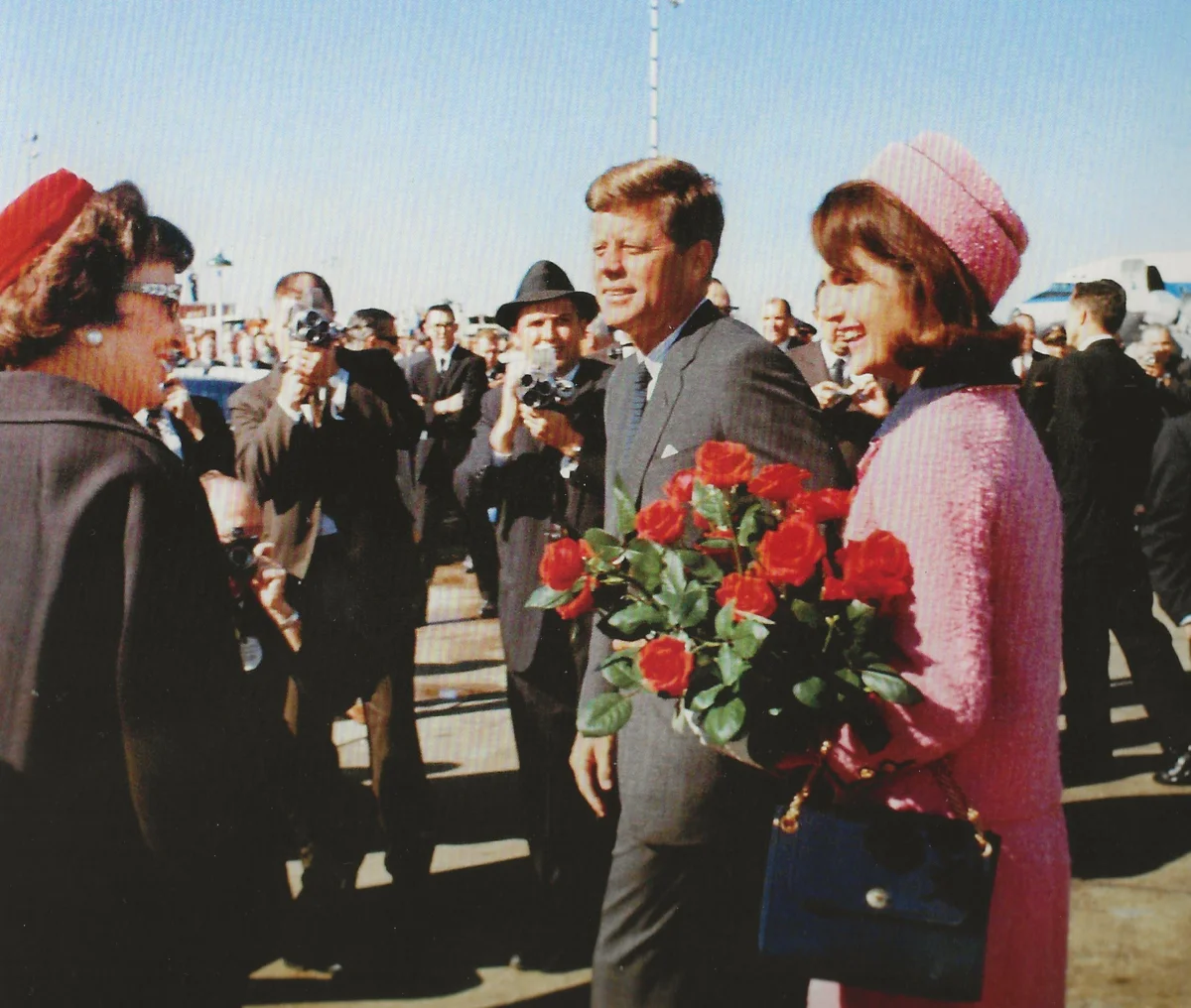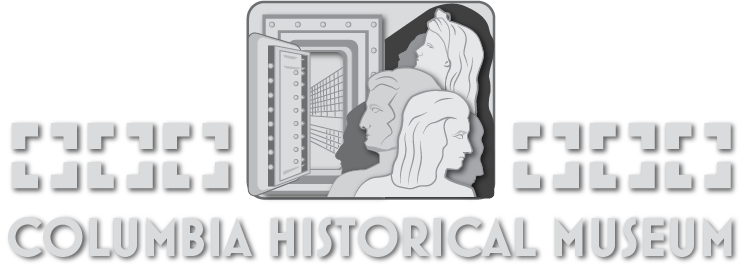![]()
By Tracy Gupton
Where were you? What were you doing when you first heard? My father told me he was watching a movie in a theater in California when the projectionist stopped the film, the lights came up in the movie house, and someone notified everyone there that the Japanese had bombed Pearl Harbor in Hawaii and America was now at war! That was December 7, 1941. In more modern times, the unthinkable tragedy that was 9-11 is forever etched in the memories of everyone as we watched the twin towers fall in New York City in the wake of a pair of hijacked passenger planes being flown into the two World Trade Center skyscrapers by suicidal terrorists.
But for me, the first of many historical events to affect my life and the way I view this tragic world we live in was the assassination of U.S. President John Fitzgerald Kennedy on this day 61 years ago in Dallas, Texas. I was only six years old, seated at my desk at West Columbia Elementary Schoo. My first grade teacher, Rose Earle, was visibly shaken by the news spreading rapidly around the world during the lunch hour on Friday, November 22, 1963. My wife of 44-plus years, Peggyjo Hall Gupton, was in the classroom next door to mine on that horrible day. Our first grade teachers, Mrs. Earle and Ann McNeel, hugged each other in tears standing outside the large windows of our classrooms. Six and seven-year-olds sitting at the desks in those teachers’ classrooms struggled with emotions we did not yet know how to deal with.
Where were you, if you were alive then, when news of President Kennedy’s death reached you? Do you remember? Of course you do. We all do. Even a little boy in the first grade like myself remembers it very clearly. I might not be able to tell you what I had for lunch yesterday, but I remember exactly where I was and what I was doing when JFK was assassinated, when President Reagan was shot, when Elvis Presley and John Lennon died. Unimaginable tragedies leave unforgettable memories for each of us to never be able to erase, despite the many years that pass. And do we really want to ever forget?

Joe Biden, 46th president of the United States, was in college when the 35th president was killed by snipers’ bullets in Dealey Plaza in Dallas. “It was a Friday afternoon; I remember it vividly,” President Biden recalled. “I was on the steps of Hullihen Hall on the mall at the University of Delaware. It was a warm day; we had just come out of class. As we were walking through the hallways, we heard that the president had been shot. I had a car on campus and three of us we went to my car, got in the car, and turned on the radio.
“It was disbelief,” Biden, who recently celebrated his 82nd birthday, said. “I remember it was almost like a frozen frame in time. Instead of everybody on campus running and saying, ‘Did you hear?’ — there were these quiet groups of people saying, ‘Can that be true?'”
“Whomever you were with, you just pulled aside and said, ‘Is this real? Is this really happening?'”
Those memoires of November 22, 1963, from President Biden came from a book I purchased for $1 this past Saturday at a Brazoria County Library book sale at the county fairgrounds in Angleton. The book, entitled “Where Were You? America Remembers the JFK Assassination,” features the sad but permanent memories of such public figures as NBC’s Tom Brokaw, CBS’s Dan Rather, Presidents Jimmy Carter, Bill Clinton and Joe Biden, movie stars Jane Fonda, Tom Hanks, Harry Belafonte and Robert De Niro and astronaut John Glenn.
What are your memories of that horrible day that occurred right here in the Lone Star State 61 years ago today? Leave your comments at the bottom of this post.
Former Texas Governor John Connally, who nearly lost his life November 22, 1963, when he was seriously wounded by the same assassin’s bullet that passed through President Kennedy’s body into Connally’s while the governor and his wife Nellie sat in the seat in front of Jack and Jackie Kennedy in the president’s limousine, said of that terrible day in 1963, “I had driven past that spot many times. It was just another roadway whose only purpose was to move you along to a prettier section of town. That day it would join Ford’s Theatre in the history of the nation.”
In his autobiography, “In History’s Shadow: An American Odyssey” (written with Mickey Herskowitz), John Connally wrote: “A 24-year-old misfit named Lee Harvey Oswald, who had been dishonorably discharged from the Marines, had gone to work as a clerk in the School Book building on October 15. The day was brilliant and sunny and crisp, and the President had made the decision not to use the bulletproof top that came with the car. We were all smiling and waving to the crowds. I was, frankly, relieved, pleased with how lovely the day had turned out and by the size and enthusiasm of the crowds that lined the curbs.
“Then I heard the first shot,” Governor Connally writes in his memoir. “And felt the second, both the sound and the impact like a loud smack. In such a moment of helplessness, of total alarm and confusion, your mind races. You have perhaps a fragment of rational thought left before the pain or the fear or both take over. And I knew, with a terrible certainty, that all of us were players in a major tragedy. A third shot was fired and the President’s brain tissue and blood were splattered over the blue velour of the limousine, over Nellie’s clothes and my own. By then my head was resting in my wife’s lap and she was whispering to me, ‘Be still. You’re going to be all right.'”
Connally did survive and would later mount an unsuccessful run for the presidency. Other presidents shared their memories of the JFK assassination in the “Where Were You?” book. “I was working in my warehouse on the day John Kennedy was shot,” recalled Jimmy Carter, who recently reached the envious milestone of his 100th birthday. “I was on a tractor, as a matter of fact, hauling grain and peanuts back and forth. I unhooked my tractor from a trailer to weigh it and went into my warehouse where farmers were. Some of them were listening to the radio and told me that the president had just been shot. I was startled and grieved. In a few minutes the news came across — I think Walter Cronkite said it — that the president was no longer living. I went outside on the private porch and cried for a while. It was the first time I had really wept for more than ten years.”
Seeing my first grade teacher crying over the news of President Kennedy’s death shook me. Her husband, S.J. “Sam” Earle, who would later be my fifth grade teacher, was the principal at West Columbia Elementary School in 1963. Another memory I have of that sad day involves Mrs. Earle instructing her first grade students to lay our heads on our desktops and listen to the radio broadcast Mr. Earle played over the elementary school’s intercom system that Friday afternoon. I also remember my parents and grandparents having the seemingly around-the -clock television coverage of the assassination and the aftermath that included the accused assassin being murdered on camera by Jack Ruby in the basement of the Dallas Police Station and President Kennedy’s funeral procession. It was all so shocking and extremely sad.

President Bill Clinton’s memory of November 22, 1963, included him being 17 years old and having had the opportunity to shake John F. Kennedy’s hand in Washington, D.C. A photograph of that meeting of these two former U.S. presidents shaking hands was taken four months before President Kennedy’s death at the relatively young age of 46. Clinton was the Hot Springs High School delegate to Boys State in 1963, where he was elected Arkansas’s delegate to Boys Nation.
The two-term president said of his memory from JFK’s assassination: “I was in my calculus class, my fourth period advanced math class,” Clinton recalls. “I was a senior in high school. It was right after lunch that I heard. My teacher, Doyle Coe, was the assistant principal, and he was called to the phone. He came in totally ashen-faced and told us the president had been shot. I remember it as if it were yesterday. I was heartbroken. I was hoping he would live. We didn’t know in the beginning whether he was dead. I just remember being totally bereft.”
President-elect Donald Trump, who will soon join two-term U.S. presidents like Bill Clinton and Barack Obama, was much luckier than John Kennedy when he avoided assassination earlier this year when an attempted assassin’s bullet clipped his right ear, missing by a mere millimeter killing President Trump. Governor Connally felt assured that John F. Kennedy would have also been a two-term president if not for that fateful day in Dallas 61 years ago.
Kennedy’s successor, Lyndon Johnson, was elected president with ease over Republican nominee Barry Goldwater in the 1964 election. Johnson, Kennedy’s vice president, was riding in the limousine two cars behind Kennedy and Connally’s car in the Dallas motorcade and was sworn in as the 36th president of the United States at Love Field airport before Air Force One flew President Kennedy’s body back to Washington D.C. from Dallas.
Millions of words have been written about the JFK assassination. Motion pictures and TV documentaries have been made over the past 61 years. And despite the passage of so much time, the murder of the handsome young president in Texas remains a prime topic of discussion, even today. Did Oswald act alone? Was the CIA and FBI involved? Did the mob or Castro have Kennedy killed? So many questions still unanswered. Where were you and what were you doing during the lunch hour on November 22, 1963?

My husband, Bob and I were living in Edgewood, Maryland and he was serving in the U.S. Army in the veterinary corps. He was at work at the Army Chemical Center. I was home ironing with two young babies. Rodney was about 2 years and Darrell was about 8 months. I called my husband at work to tell him but he had also heard the horrible news. We felt so bad that it had happened in our wonderful home state. We drove to Washington D.C. with a couple from Dallas,Texas to see the family attending church and the walk the Kennedy Family made with all the dignitaries from all over the world. We also were on the bridge near the cemetery and heard the gun salute. It was so sad
I was a first year teacher, teaching Third Grade in Maringo, Illinois. I stopped in the office on my way to pick up the children from lunch. The lady in the office had just heard the news on the radio. I took the children back to the classroom and told them the disturbing news and turned the class radio on to see how President Kennedy was. They listened intensely. I remember, I believe it was Walter Cronkite say, “President Kennedy was pronounced dead at 12:??”. Some cried. We talked for a long time.